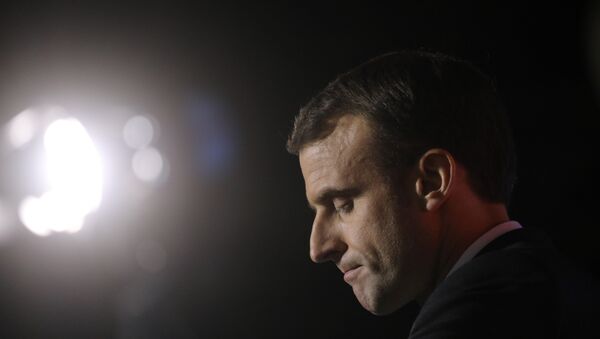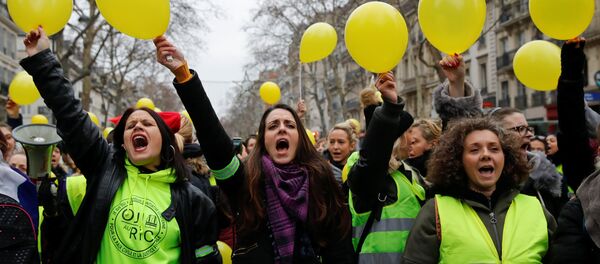Sputnik: Saturday saw a tenth week of Yellow Vest protests, it's not a great sign for the government that their consultation has much chance of succeeding, is it?
Dr Paul Smith: Well, I think it needs to be read in quite a subtle way; I think what we're seeing is quite a hard core of what we might call irreductables who are not going to be bought off by the consultation. But the numbers that are now participating in the Saturday protests are now very small and that's the hardcore. And that's not the people that Macron is trying to appeal to or can appeal to. I think what's he doing with the national debate is trying to reach to moderate voters to the right of the debate who are more conciliatory and much more amenable to discussion.
Dr Paul Smith: I think that people in government initially underestimated the size of the movement. I think that very early on that was a mistake. And then once it became clear through various public opinion polls that there was broad support for some of the demands of the Yellow Vest movement then they should have moved more quickly. I think one of the ways that one could criticize Macron's response — some of the things he's said about the Yellow Vest movement — it hasn't been terribly diplomatic. You can feel that some of these people are troublemakers but you've still got to try and carry quite moderate people who do feel attached to this movement. I think that some of the rhetoric on his part has been quite clumsy on his part.
READ MORE: Serbian Protests: Vucic's Yellow Vest Moment?
Sputnik: What do you think could bring about an end to the Yellow Vest protests?
READ MORE: 'Yellow Vest' Protests Held in Brussels
Sputnik: Do you think Macron is going to weather the storm, even if the Yellow Vest protests continue?
Dr Paul Smith: Yes I think you're right, his reputation has been damaged and this is a turning point moment for his term in office. So he has to pull the rabbit from the hat if it's a magician's turn. When we get to the end of the debate he has promised that there will be a response to the process of the debate. There will be a response to these cahiers de doleances, these books in which people can go to their local Mairie and write their complaints or make their proposals.
And the test of that will be in some ways the European elections that then follow. So although one might imagine that the European elections would be about something else, they might become a popular vote over the performance of the government. That's where the crunch will come for the government but also for the other political parties; they are still very much divided in their response to what's happening at the moment.
The views expressed in this article are those of the speaker and do not necessarily reflect those of Sputnik.




